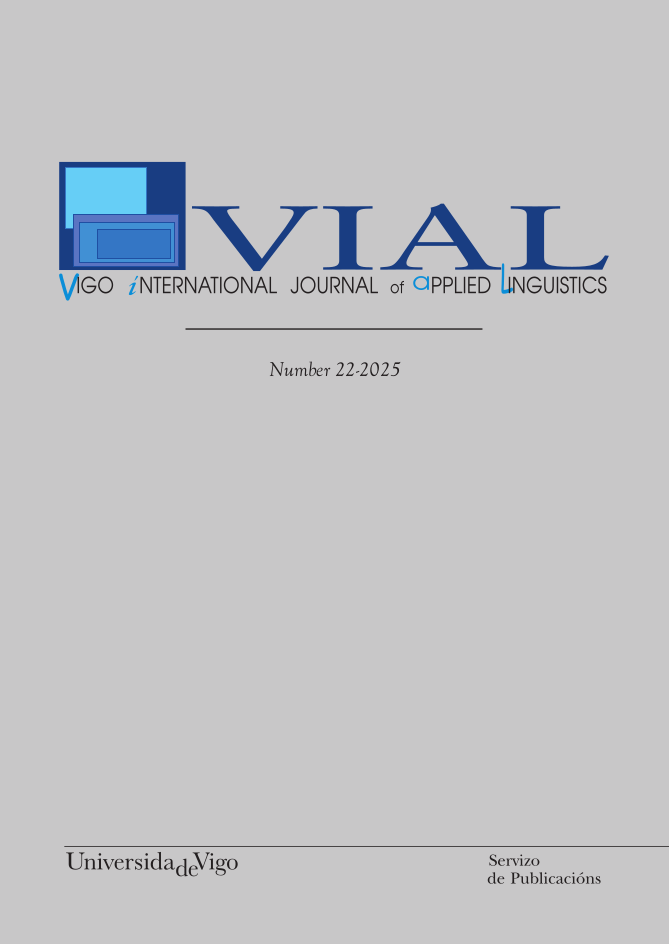Trainees’ beliefs about the use of cinema as a tool for EFL
DOI:
https://doi.org/10.35869/vial.v0i22.3953Palabras clave:
EFL, cinema, benefits, trainees' opinion, teacher educationResumo
Despite the growing presence of cinema in the classroom and the multiple benefits it has been proved to have for the teaching of English as a foreign language (EFL), the implementation of films in the English lessons is still an under-researched area, particularly, as regards instructors’ views on the adequacy of this material. Thus, the present study delves into trainees’ beliefs (N = 121) regarding the potential of cinema for EFL before and after analysing a film-based lesson plan. Questionnaires, open-ended questions, and focus groups were employed to obtain quantitative and qualitative data on the perceived linguistic, intercultural, and motivational advantages of films. The results reveal that, at the outset of the research, trainees held cinema especially useful for eliciting linguistic and intercultural knowledge. However, they were unaware of how to exploit this textual modality and considered some of its characteristics problematic for class use. In the post-analysis stage, the participants assigned similar rates of importance to the three analysed dimensions, reflecting an even more favourable attitude towards this resource. This positive change trend seems to stem from a broadened awareness of the proper exploitation of film after examining the lesson plan provided. Pedagogical and research implications are also defined.
Descargas
Descargas
Publicada
Número
Sección
Licenza
Libros UVigo é o portal de publicación en acceso aberto das revistas da Universidade de Vigo. A posta a disposición e comunicación pública das obras no portal efectúase baixo licenzas Creative Commons (CC).
Para cuestións de responsabilidades, propiedade intelectual e protección de datos consulte o aviso legal da Universidade de Vigo.



